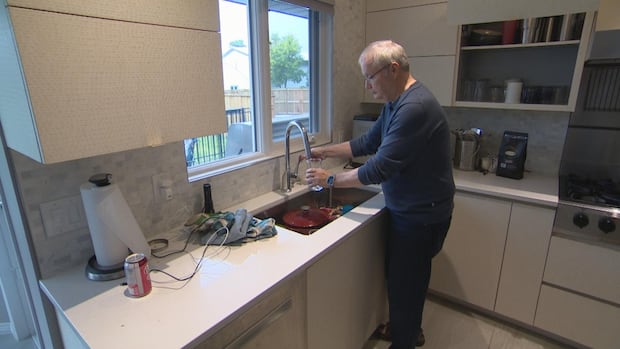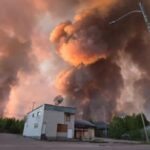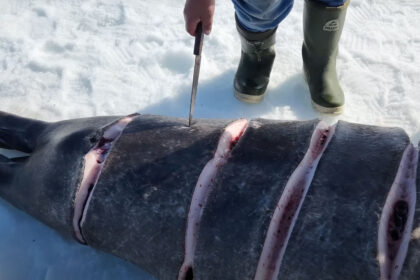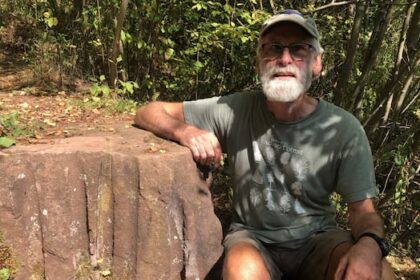ManitobaResidents in south St. Vital are worried a planned housing development could threaten their well water, after a city council committee voted to move the project forward against the recommendation of city staff.Plan for 23 lots in Daman Farm area, south of Perimeter Highway, was rejected 4 years agoCameron MacLean · CBC News · Posted: Sep 11, 2025 8:11 PM EDT | Last Updated: 6 hours agoKerry Thacher worries his tap water could become undrinkable if a planned housing development near his home on Jean Louis Road goes ahead. (Trevor Brine/CBC)Residents in south St. Vital are worried a planned housing development could threaten their well water, after a city council committee voted to move the project forward against the recommendation of city staff.Developer A&S Homes wants to subdivide an area known as Daman Farm — a renaturalized agricultural area south of the Perimeter Highway, between the Red River and St. Mary’s Road — into 23 lots, each around two acres (about one hectare) in size. A city report recommended rejecting the plan, citing a 2004 hydrogeological study that recommended prohibiting lot sizes smaller than five acres (about two hectares) in the area.On Sept. 4, the Riel Community Committee unanimously approved the developer’s plan, despite the concerns from staff and residents who spoke at the meeting. Among those speaking was Kerry Thacher, a resident of Jean Louis Road, which runs south of the proposed development. His water is safe to drink right now, but he said that’s not true for some of his neighbours.”I know there’s residents further that way that are saying they’re seeing higher salinity in their wells,” Thacher said in an interview.On nearby Christie Road, just north of where Thacher lives, “there’s wells there already that can no longer be used,” he said. “So this is not like an academic problem. It’s already happening.”Mildred Smallwood has lived near Daman Farm for 52 years. She says her well water is no longer drinkable. (Trevor Brine/CBC)City water and sewer services do not connect to houses in the area. Many people rely on wells, but every new well dug into the underground aquifer pulls in salt from an area west of the Red River.Mildred Smallwood has lived in the area for 52 years. She says her well water is no longer safe to drink.”It would dissolve aluminum. I had an aluminum kettle, and before I knew it it was leaking,” she said.Proposed solutionsJeff Pratte of Landmark Planning, which is representing the developer, told the committee a caveat would be put on all land titles, forbidding new wells.Instead, owners of the new houses would truck in water and store it in cisterns.”If people are concerned about protecting the groundwater aquifer, the best means of doing so is to have no new wells. Any talk about using larger lots with fewer wells is not the best means of protecting the aquifer,” Pratte told CBC News.In 2021, council rejected a plan for the same number of lots. At the time, city staff said they did not have the power to enforce a ban on new wells in the area, which fall under provincial jurisdiction.Developer A&S Homes wants to subdivide the property, known as Daman Farm, into 23 lots. (Trevor Brine/CBC)They also said there would be little they could do to prevent owners from putting in private wells after they take possession, something Thacher says has happened on other properties in the area.”First of all, a cistern will probably cost you tens of thousands of dollars,” Thacher said. “You got a restricted amount of water.… They’re going to have a lot of irrigation needs, watering lawns, swimming pools, whatever else. So it’s very expensive to truck water in every couple of weeks to do that.”Michelle Olivson, another Jean Louis Road resident, said she doesn’t understand why the committee would approve the same project it rejected four years ago.”Politicians change, priorities change and shift. There’s no guarantees for us. So why is this OK now, but it wasn’t OK then?” she said.St. Norbert-Seine River Coun. Markus Chambers says he has assurance the city can enforce the proposed caveats. “I’m also working … on a motion that will inspect, maintain and ensure that no wells are dug in that protected area for two-acre properties,” he said.Chambers also said the aquifer covers hundreds of square kilometres, and that recent changes in residential and industrial activity in the area — including a new water treatment plant in Niverville — have relieved some of the pressure on the aquifer in recent years.Concern for treesOpponents of the development also say they’re worried about the impacts on the ecological health of the area, which is across the river from the Lemay Forest, another site of conflict between developers and local residents concerned about preserving a natural area.City staff had also recommended setting aside 10 per cent of the Daman Farm land as public reserve, but the committee stripped that out, accepting cash in lieu. Opponents of the development say the area is part of a sensitive ecosystem, home to many plants and wildlife, including eagles. (Submitted by Werner Ens)Shelley Sweeney, a member of the greenspace advocacy group OURS (Outdoor Urban Recreational Spaces) Winnipeg, said she was surprised by that decision.”I’m very surprised that they would take cash, which is very easily expended and gone — like, if they purchase some sort of equipment for a playground … [it’s] very limited,” she said. “These trees have been there for possibly hundreds of years.”The development plan still has to go through multiple committees, starting with the planning, property and development committee on Friday, before facing a final vote at council.ABOUT THE AUTHORCameron MacLean is a journalist for CBC Manitoba living in Winnipeg, where he was born and raised. He has more than a decade of experience reporting in the city and across Manitoba, covering a wide range of topics, including courts, politics, housing, arts, health and breaking news. Email story tips to cameron.maclean@cbc.ca.
Thursday, 5 Feb 2026
Canada – The Illusion
Search
Have an existing account?
Sign In
© 2022 Foxiz News Network. Ruby Design Company. All Rights Reserved.
You May also Like
- More News:
- history
- Standing Bear Network
- John Gonzalez
- ᐊᔭᐦᑊ ayahp — It happened
- Creation
- Beneath the Water
- Olympic gold medal
- Jim Thorpe
- type O blood
- the bringer of life
- Raven
- Wás’agi
- NoiseCat
- 'Sugarcane'
- The rivers still sing
- ᑲᓂᐸᐏᐟ ᒪᐢᑿ
- ᐅᑳᐤ okâw — We remember
- ᐊᓂᓈᐯᐃᐧᐣ aninâpêwin — Truth
- This is what it means to be human.
- Nokoma











